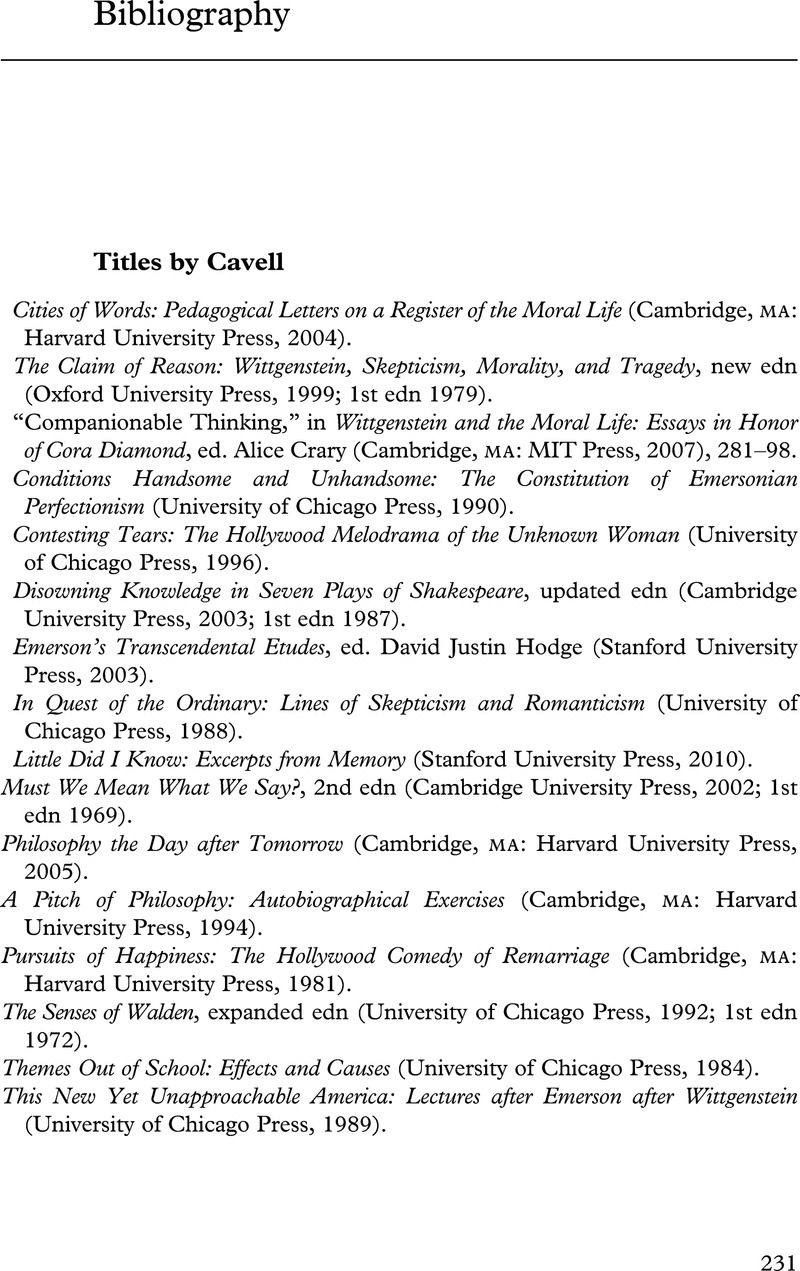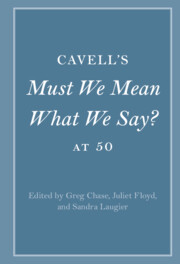Book contents
- Cavell’s Must We Mean What We Say? at 50
- Cambridge Philosophical Anniversaries
- Cavell’s Must We Mean What We Say? at 50
- Copyright page
- Contents
- Contributors
- Acknowledgments
- Abbreviations for Cavell’s Works
- Introduction
- Part I Ordinary Language and Its Philosophy
- Part II Aesthetics and the Modern
- Part III Tragedy and the Self
- Bibliography
- Index of Names and Subjects
- Index of References to Cavell’s Works
- References
Bibliography
Published online by Cambridge University Press: 03 March 2022
- Cavell’s Must We Mean What We Say? at 50
- Cambridge Philosophical Anniversaries
- Cavell’s Must We Mean What We Say? at 50
- Copyright page
- Contents
- Contributors
- Acknowledgments
- Abbreviations for Cavell’s Works
- Introduction
- Part I Ordinary Language and Its Philosophy
- Part II Aesthetics and the Modern
- Part III Tragedy and the Self
- Bibliography
- Index of Names and Subjects
- Index of References to Cavell’s Works
- References
Summary

- Type
- Chapter
- Information
- Cavell's Must We Mean What We Say? at 50 , pp. 231 - 239Publisher: Cambridge University PressPrint publication year: 2022

